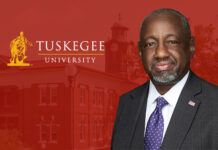 A new study by scholars at Baylor University in Waco, Texas, and Boston College finds that voters are likely to punish elected school board members when the academic achievement of White students in their district is not up to expectations. But they found no similar electoral punishment for school board members in districts where African American and Hispanics students are not achieving success.
A new study by scholars at Baylor University in Waco, Texas, and Boston College finds that voters are likely to punish elected school board members when the academic achievement of White students in their district is not up to expectations. But they found no similar electoral punishment for school board members in districts where African American and Hispanics students are not achieving success.
The authors looked at 1,500 school board member elections in California between 2004 and 2013. The results showed that the reelection of incumbent school board members was correlated with White student achievement in the school district. The effect was less for Hispanic student achievement and nonexistent as related to Black student achievement.
Patrick Flavin, associate professor of political science at Baylor University and the lead author of the study, stated that “public education represents the largest investment in equal opportunity and social mobility in the United States. But we find little evidence that African-American or Hispanic student achievement has much influence on reelection prospects of incumbent school board members.”
The authors conclude that “the study ultimately calls into question whether voter control of public school governance is a viable avenue to correct racial inequality in education that can have important and enduring effects on democratic citizenship and political equality.”
The study, “Racial Inequality in Democratic Accountability: Evidence from Retrospective Voting in Local Elections,” was published in the American Journal of Political Science. It may be accessed here.













Research appears to be sound. It does have some validity. Moreover, the board of education is in the business of implementing policy, procedures, budgets, ethics, and values for the school system. Yes, it is also concerned with achievement of students.However, the education of the child has much to do with the expectations of parents. If the parent is only interested in sending the child to school to be baby sit. Then, the purpose of school has eroded at the core.The parent must get involved in the child’s education. The school board, principals, teachers, activists cannot along resolve the issue of achievement without the concern parent or parents. The parent or parents must first appreciate learning. And, the parent has an obligation to push their children in the direction of excellence. The school board is just one entity. It cannot alleviate the issue of underachieving without parent input. In addition, the number of communities saddled with poverty and single parent homes is overwhelming to say the least. In our communities, learning is not something we strive for universally. The kid who desires to be doctor is label to be white.